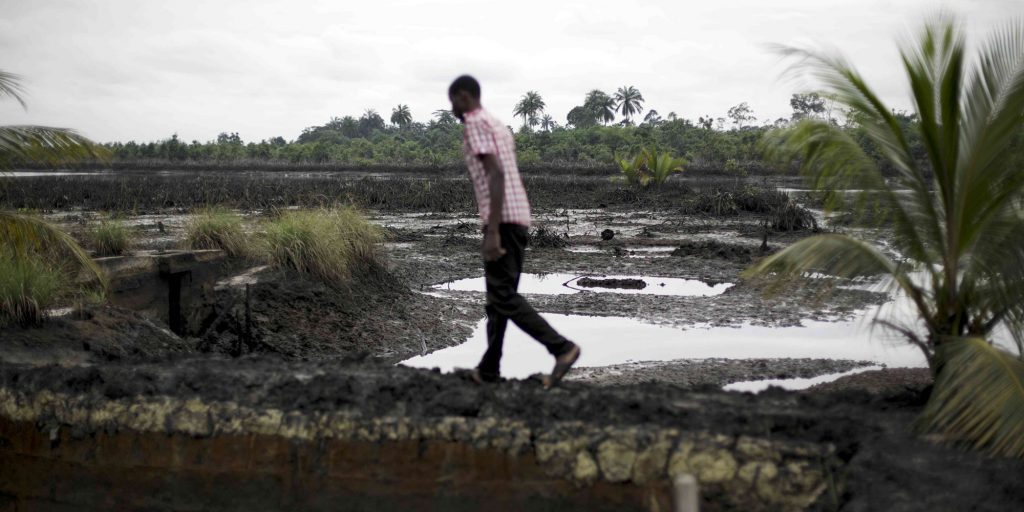Today, Environmental Rights Action, Amnesty International, and Friends of the Earth Europe called for the immediate clean-up of oil pollution in Ogoniland in Nigeria’s Niger Delta, in line with recommendations made by the United Nations Environment Programme (UNEP) in its landmark 2011 study of the region.
One year since the Nigerian Government officially launched a clean-up programme in Ogoniland, communities affected by decades of oil spills are still waiting for actual action on the ground to begin.
The government has made some administrative steps – putting in place the governing structures and appointing a coordinator to lead HYPREP, the implementation agency. But six years after publication of UNEP’s report, very little meaningful progress has been made to improve the situation, either by the Nigerian Government or by Shell, the main operating company in the area. In particular:
- Only 1% of the necessary funds are available: a group of stakeholders has reportedly transferred $10m of the initial $1billion budget required.
- Despite UNEP’s call for emergency action to address the serious public health risks posed by oil-polluted drinking water, the government and Shell have not provided alternative sources of safe drinking water to some of the communities where UNEP found contaminated water wells.
- Shell continues to use the discredited RENA (Remediation Enhanced Natural Attenuation) procedure for cleaning up oil spills, despite UNEP’s clear recommendation that the process is ineffective and should be discontinued.
- The company also says it has revisited 15 oil spill sites identified by UNEP, and carried out further remediation at 6 of those sites. However, this is misleading because UNEP found contamination at more than 50 sites operated by Shell.
- An Amnesty International investigation found that extensive visible pollution still remains at four oil spill sites identified by UNEP, despite claims by Shell that it had conducted successful remediation work. Amnesty International has called for the Nigerian government to investigate how its regulators certified these sites as clean.
“Six years after the UNEP report the communities of Ogoniland are still unacceptably waiting for action to clean up their land and water. Justice cannot be endlessly delayed, the Nigerian government needs to urgently ensure the plan is implemented immediately,” said Godwin Ojo, Environmental Rights Action/Friends of the Earth Nigeria.
Meanwhile the oil industry continues discredited practices and fails to ensure Ogoniland is free of pollution.
“It’s clear that Shell is using the Government’s delayed clean-up programme as an excuse for not properly cleaning-up past pollution. The company’s responsibility is clear – to properly clean-up it’s pollution now” said Joe Westby, Amnesty International.
The UNEP report called for the implementation of emergency measures, the establishment of a $1 billion start up fund and extensive clean-up of Ogoniland.
”It’s overdue that the start-up fund is immediately fully funded and the clean-up operation fully staffed. A clear priority should be the immediate delivery of all emergency and priority measures outlined in the UNEP report – no more delays,” said Colin Roche, Friends of the Earth Europe.






